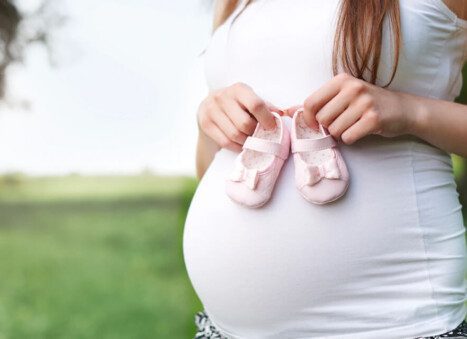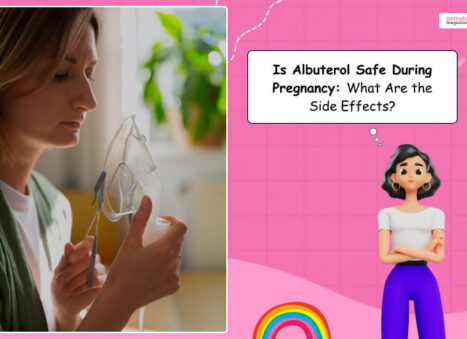
Teenage Pregnancy – Signs, Care, Support & Effects
Teenage pregnancy or adolescent pregnancy is a very concerning matter. When Women under 20 (aged between 15 to 19) get pregnant, that is what we call a teenage pregnancy.
Teenage or adolescent pregnancy can also happen to girls as young as 10 years young. The main problem with teenage pregnancy is the different risks associated with the health of the teenage mother and the newborn child.
Here is all you need to know about Teenage pregnancy. This article contains the risks, symptoms, and other factors teenagers need to know about teenage pregnancy.
What Is Teenage Pregnancy?

Teenage pregnancy refers to pregnancy in females aged between 13 to 19 years old. It is a significant public health issue that can lead to negative health and social consequences for both the mother and the child.
Teenage pregnancy can occur due to various reasons, including lack of access to contraceptives, peer pressure, low educational attainment, poverty, and sexual abuse.
Pregnant teenagers may face challenges such as health risks during pregnancy and childbirth, interruption of education, social stigma, and financial difficulties. It is essential to provide support and access to comprehensive reproductive health education and services to prevent teenage pregnancy and promote the well-being of young mothers and their children.
Symptoms Of Teenage Pregnancy
In general, a missing period is a symptom of women’s day. But, for women, it is a little tricky to spot a pregnancy through their periods. Compared to mature women, teenage girls don’t have a regular period.
There are more reasons for irregular periods in women. The reasons that cause an irregular cycle of periods are exercise, dieting, a low body, fat due to sports, or anorexia.
However, here is a full list of teen pregnancy symptoms.
- A missed period.
- Morning sickness (Vomiting or Nausea) is more common. It can also happen throughout the day.
Also, if anyone gets a positive pregnancy result by using a home pregnancy test kit, it could also mean that the individual is pregnant. Anyone can buy these kits from the drug store over the counter.
Teenage Pregnancy Risks
Risks associated with pregnancy are higher when it is a teenager. There are health risks during pregnancy. Here is a detailed study on the kind of health risks teenagers might face due to teenage pregnancy –
Health Risks For The Mother & The Baby
Teenage mothers are more likely to experience pregnancy complications such as anemia, high blood pressure, and preeclampsia. They also have a higher risk of delivering their baby prematurely or having a low birth weight baby. Teenage mothers may also be at higher risk of postpartum depression.
Here are the different health risks teenage girls go through when they are pregnant during their teenage years –
1. Anaemia
During pregnancy, the blood volume in the female body increases, and as a result, the requirement for iron also increases. The female body uses iron to transfer oxygen to the baby’s body. However, with teenage pregnancy, if the teenager does not have enough iron stored in her body or if she is not getting enough iron, she will likely suffer from iron deficiency anemia.
2. High-Blood Pressure
Teenagers have a greater chance of higher blood pressure than mature women.
3. Preeclampsia
Preeclampsia is another risky health condition women might experience during pregnancy. This condition combines high-blood pressure and a high percentage of protein in the urine. This causes swelling of the mother’s hands, legs, and face and may even cause organ damage. Teenagers have a higher chance of preeclampsia than women in their 20s or 30s.
4. Premature birth
Another risk of teenage pregnancy is premature birth. Usually, a normal pregnancy would take 40 weeks. Any birth before the 37th week of pregnancy is considered a premature birth. It may sometimes also happen too early during pregnancy.
In such cases, premature labor can be stopped with medication. Premature birth poses a different risk to the baby’s health. Such risks are associated with the baby’s respiratory, vision, cognitive, digestive, and other attributes.
5. Postpartum Depression
Postpartum depression is one of the worst stages of life women often go through during pregnancy or after childbirth. According to the CDC, girls might feel depressed, hindering their ability to care for the newborn baby.
6. Low Birth Weight
A premature birth is a reason for the baby’s low birth weight. The earlier a baby is born, the lesser time it has to grow inside the womb. These babies weigh less than 3.3. Pounds. Such babies need to be put inside the ventilator or neonatal care unit.
7. Child Development Risks
Children born to teenage mothers may be at higher risk for developmental delays, behavioral problems, and academic difficulties. They may also have a higher risk of experiencing abuse or neglect.
8. Interpersonal Risks
Teenage mothers may face challenges in their relationships with partners, family members, and friends. They may also experience stigma or social isolation due to their pregnancy.
Social, Economical, And Other Risks Of Teenage Pregnancy
Health risks are not the only risks and problems teenagers have to go through during their pregnancy or after childbirth. Teenage pregnancy may lead to other social or economic risks. Here are some examples that teenagers may experience –
1. Lack Of Prenatal Care
Teenage mothers may struggle to get the right amount of prenatal care. Sometimes, parents abandon pregnant teenage girls and do not provide any support. Prenatal care is essential means to prevent specific birth defects. These usually consist of different medication and prenatal vitamins.
2. Economical Risks
Teenage pregnancy can limit the mother’s educational and career opportunities, which can affect her long-term earning potential. Teenage mothers may also struggle to find adequate housing and support for themselves and their children.
3. Risks Of Being A Teenage Father
Teenage fathers have a 30% lesser chance of finishing their school and getting a proper education. They also feel worried about the health of their partner and the baby. Limited financial support and financial challenges take a mental, financial, and physical toll on teenage fathers.
4. Lack Of Support From The Parents
Also, lack of care and support during pregnancy is another problem teenagers suffer from if the pregnancy is unplanned. They are less likely to have a nutritious meal or scope to take enough rest or exercise. There is always a lack of support from any adult (be it someone from their family, community, or acquaintances.)
Also, even if teenagers are able to overcome this situation, raising a child becomes difficult for them.
How To Prevent Teenage Pregnancy?
There is more to teenage pregnancy prevention than just contraceptive pills or protections (condoms). We can start by prioritizing education, offering access to contraception, promoting healthy relationships, and parental involvement. However, Here are a few ways that might help –
Comprehensive Sex Education
Providing teenagers with accurate information about sexual health, contraception, and pregnancy prevention can help them make informed decisions and reduce their risk of unintended pregnancy.
Access To Contraception
Ensuring that teenagers have access to a range of contraceptive options, including condoms, birth control pills, and long-acting reversible contraceptives (LARCs), can help reduce the risk of unintended pregnancy.
Encouraging Healthy Relationships
Promoting healthy relationships, respectful communication, and consent education can help teenagers build positive relationships and reduce their risk of unintended pregnancy and sexually transmitted infections (STIs).
Parental Involvement
Open communication between parents and teenagers about sex and relationships can help teenagers make informed decisions and reduce their risk of unintended pregnancy.
Supportive Environments
Providing teenagers with access to supportive environments, including peer support groups, healthcare providers, and community resources, can help them navigate challenges and make healthy choices.
Things to expect during prenatal visits
During the first few months of pregnancy, it is common to visit the doctor at least once a month. In the later months of pregnancy, you may visit the doctor every other week and just before your due date you might have to visit the doctor every week, to know in detail what exactly is going on with your child.
In every visit you will be tested to check the position of the baby and for its heart rate and heartbeat. Ask them if you have any queries and if you are having any issues with your child. It is better to take care of every little thing as things might go wrong very easily in teenage pregnancy. Your doctor will give you a heads-up on what to expect as you get close to the due date.
It is better to see the doctor if you face any little concern about your health and your baby’s. Let them know if you have any condition that might cause you any problems during the time of delivery. You should see a doctor immediately if you have the following symptoms:
- Any kind of vaginal bleeding. Even if it is spotting.
- If you are having severe headaches and getting it regularly.
- If you are getting blurry visions.
- If you are experiencing abdominal pain.
- If you are vomiting persistently.
- If you have a fever or getting chills.
- If it is burning while you are urinating or having pain.
- If you find any kind of fluid leaking through the vagina.
- If your legs have swollen and if it is paining.
How Are Teen Fathers Affected With A Teenage Pregnancy?
It might be a very frightening thing to father a child in your teenage years. This could be a life-changing event. A teen mothers might not have to worry about the health issues of childbirth and pregnancy, but they have to deal with the social issues in the same way. They might face problems in school, earn a living, their families might go against them and not accept them and they might have to go through the crude comments that society would pass.
Laws from different states have different legal age for having sexual intercourse. Getting involved in sexual activities before reaching the legal age might have serious consequences against them. He might be registered as a sex offender if he has reached the legal age but his partner has not.
Bottom Line
If you have passed the prevention stage of teenage pregnancy, you have to think of preventing health risks and other complications. Prenatal care is a must during such conditions. You should get in touch with the doctor; you can also consult with the nurse at your school. State Medicaid or WIC programs are there to help teenage mothers. Also, stay away from cigarettes, drugs, and alcohol during pregnancy to avoid any complications. Also having emotional support during pregnancy is also crucial. Ask your family members, friends, and the baby to support you emotionally during pregnancy.
I hope you have found the help you were looking for. However, if you have any questions, please reach out to us in the comment section. We will answer them for you as soon as possible.
Read Also:
Already have an account?
Sign In
Create your account
User added successfully. Log in








